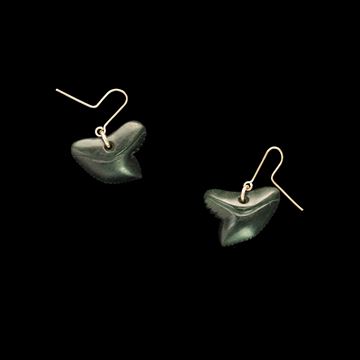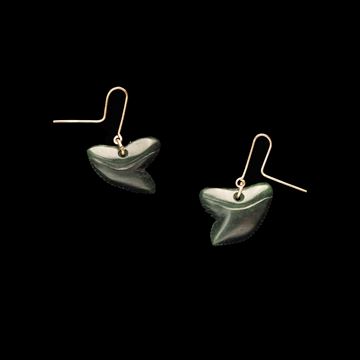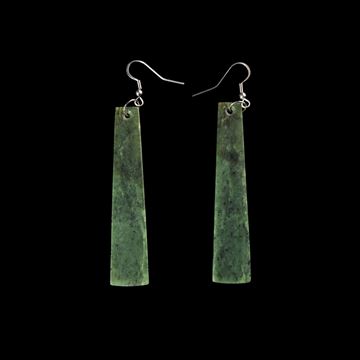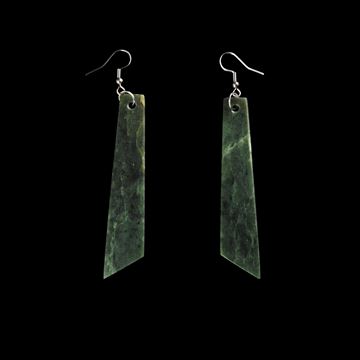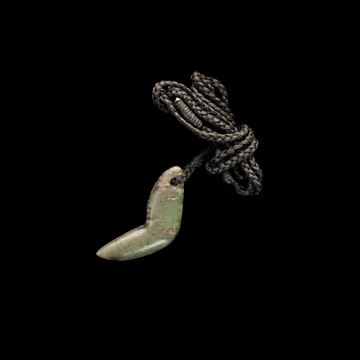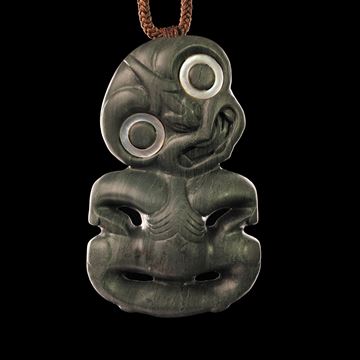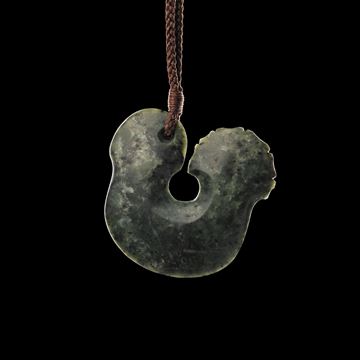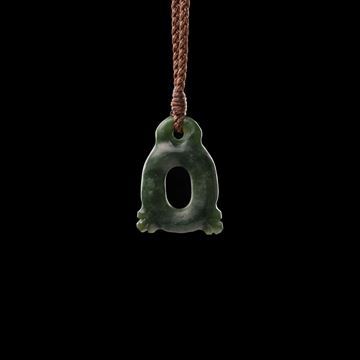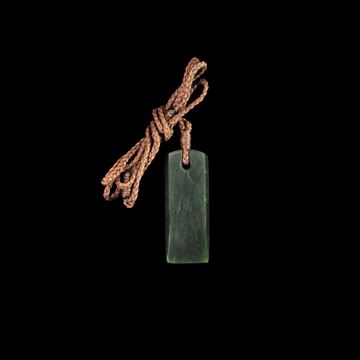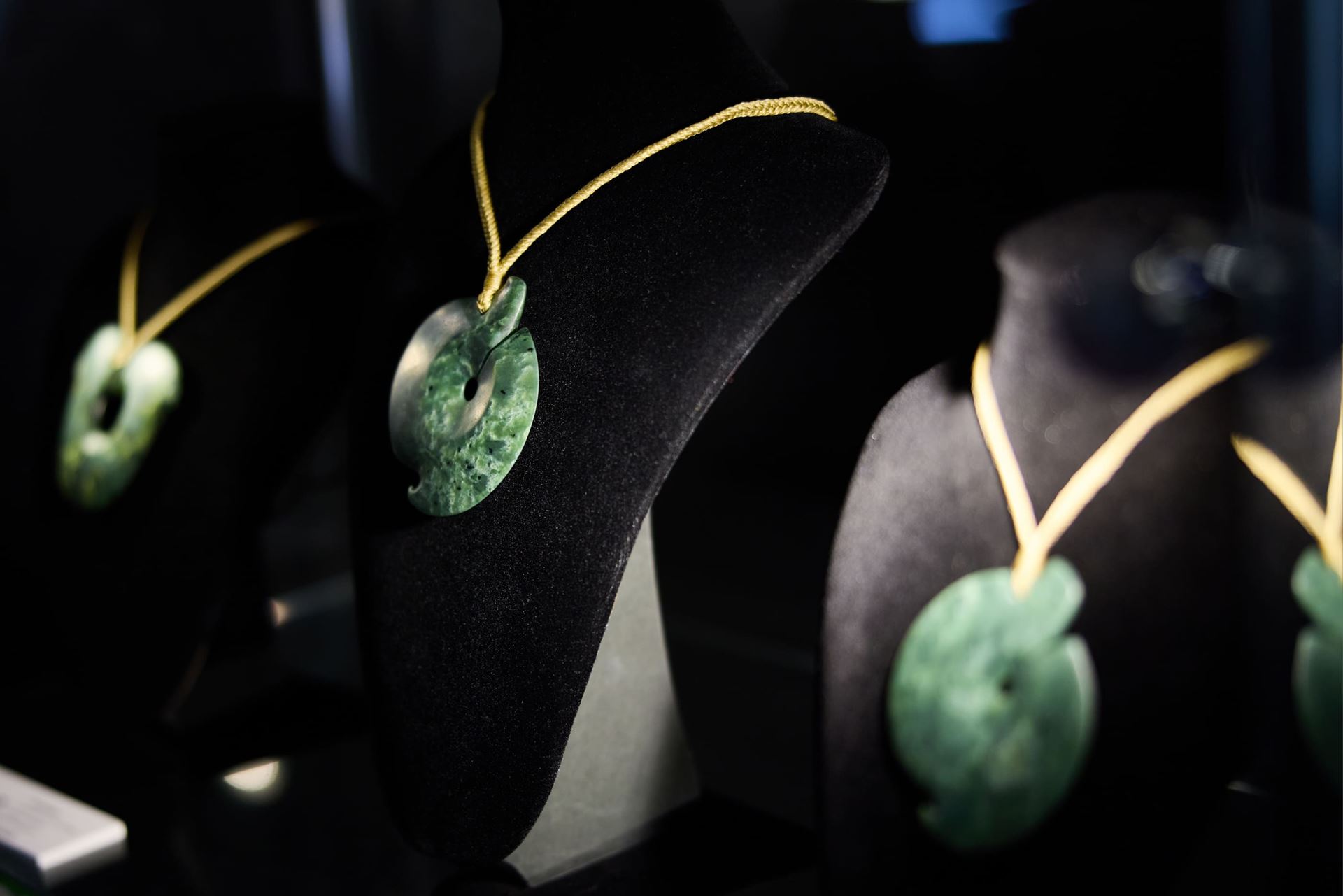
Pounamu - Jade
At Te Takapū, students learn the revered tradition of carving pounamu (Nephrite-Jade/Greenstone), bone and stone. This tohu (qualification) is for two years and is approximately 40 hours per week, 47 weeks of the year.
Like something special? Commission your own special piece here
Tiger Shark Earrings - 4543IA
Shark teeth were highly sought after to wear as a symbol of prestige for personal adornment. They were reflective of the mana of the shark itself.
Material: Pounamu (Kawakawa)
Measurements: 12mm x 25mm x 6mm
$390.00
Tiger Shark Earrings - 4544IA
Shark teeth were highly sought after to wear as a symbol of prestige for personal adornment. They were reflective of the mana of the shark itself.
Material: Pounamu (Kawakawa)
Measurements: 12mm x 25mm x 6mm
$390.00
Toki Earrings - 6223RH
Toki earrings (or drop earrings) are designed to suspend from the bottom of the earlobes. The length varies from a centimetre or two, all the way to brushing the wearer's shoulders.
Material: Pounamu (Kawakawa)
Measurements: 68mm x 15mm x 2mm
$390.00
Toki Earrings - 6229RH
Toki earrings (or drop earrings) are designed to suspend from the bottom of the earlobes. The length varies from a centimetre or two, all the way to brushing the wearer's shoulders.
Material: Pounamu (Kawakawa)
Measurements: 71mm x 15mm x 2mm
$390.00
Hei Tiki - 6206MA
Hei tiki are the best known of all Māori adornments. Tiki are symbols of fertility that depict a new-born child. They are often family heirlooms bearing personal names and embodying their wearers lineage. As with most Māori personal adornments, hei tiki are often passed down generationally.
Material: Pounamu (Waikohatu) & Mother of Pear Inlays
Measurements: 93mm x 55mm x 18mm
$2,900.00
Hei Matau - 8565HW
Coastal and river-based Māori tribes traditionally used a variety of fishhooks and lures. Hooks and lures varied in shape, material and design. Today hei matau (fishhooks) have become symbolic of traditional Māori technology and continue to symbolize a relationship to Tangaroa, God of the sea.
Material: Pounamu (Hapopo)
Measurements: 62mm x 57mm
$395.00
Pōria Kākā - 5497MA
Pōria Kākā are leg rings crafted from bone or stone used to keep pet kākā (parrots) from flying away. The giant kaka parrot was used by the Māori to assist them during hunting. The bird was used as a decoy to capture other kaka parrots.
As with many Māori items the kaka ring was both used as a tool as well as an adornment.
Material: Pounamu (Kawakawa)
Measurements: 35mm x 25mm x 4mm
$450.00
Toki - 6179KH
The toki pendent is based on the form of the carving chisel used in whakairo (Māori carving).
Material: Pounamu (Kawakawa)
Measurements: 50mm x 19mm x 6mm
$450.00

